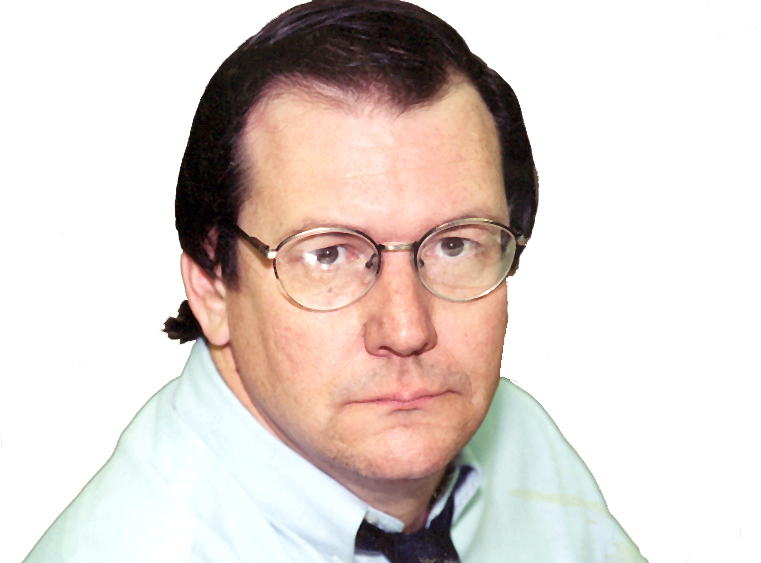Myers: Ali: The man who was right too soon
Nevada was a co-conspirator in the blacklisting of Muhammad Ali.
With a fight between Ali and Floyd Patterson at issue in 1967, Nevada’s Gov. Paul Laxalt, whose cronies included organized crime figure Moe Dalitz, called the supposedly independent state athletic commission to the state capital for an “emergency” meeting and urged them to cancel the fight. They did.
Novelist Budd Schulberg wrote of Ali, “He thought he had it made in Las Vegas, but at the last minute the governor decided it would not be in the best interest of the great state of Nevada. The Mafia, yes; Ali, no.” Sportswriter Roy McHugh: “If Patterson doesn’t belong in the same ring with Clay (Ali), who does?”
Ali had joined the Black Muslims and opposed the war in Vietnam. Patterson considered himself Christian redeemer against Ali’s Muslim faith (“He might as well have joined the Ku Klux Klan.” “The image of a Black Muslim as the world heavyweight champion disgraces the sport and the nation.”)
Laxalt didn’t actually say he engineered the cancellation because of Ali’s views, of course – though his attitude was shown plainly by his disrespectful refusal to call Ali by his name.
Laxalt’s fig leaf was that he considered the impending fight to be a poor bout that might reflect badly on the state’s image because Patterson had fought poorly against Ali in their previous fight: “If Patterson should win, eyebrows would be raised all over the world.” Two weeks earlier Patterson had needed just one round to KO Bill McMurray in Pittsburgh.
But whether the rematch would have been a worthy bout is a call for boxing regulators, who are supposed to be left alone by politicians who want to pressure them for reasons unrelated to athletics.
In 1967, those who opposed the actions of our reckless, out-of-control government in Vietnam had few champions among well-known figures. But Ali gave up everything to oppose it. When I heard he was going to refuse induction into the military, I didn’t realize at first what it was going to cost him. When the WBA stripped him of his title for holding an unpopular opinion, it shocked me.
I wasn’t yet at an age where I knew how regularly people with power tried to hurt people for their opinions. Besides, the WBA didn’t give him the title—he won it. He lost some of this best fighting years while blacklisted, yet still dominated boxing.
From Nevada, the issue moved to Pennsylvania, where it had been approved five weeks earlier and where Republican Gov. Raymond Shafer (disclosure: second cousin to this writer) had signaled his approval.
When the fight was scheduled for Pittsburgh, the two Republicans spoke on the phone and then Shafer ordered it be banned by a state commission, a reversal of his original position. “If it’s not good enough for Nevada, it’s certainly not good enough for Pennsylvania,” Shafer said.
Pennsylvania Athletic Commissioner John Vaughn said, “It just isn’t right. We’ve got the best two fighters in the world. How can anyone object to that? We told them that we would accept the fight. The whole commission has accepted it.”
Two years later, Laxalt tried to rewrite history about 1967. When Nevada was being considered for a 1969 Ali/Frazier bout, Laxalt—still calling the champion by the wrong name—said he still would not allow Ali to fight in the state. “We were the first state to stop Clay from fighting after he refused induction into the army,” Laxalt said, which was false. Nevada was not the first state and at the time Laxalt arranged cancellation of the Patterson fight, Ali had not yet refused induction.
Boxing meant little to me, but Ali meant a lot. Muhammad Ali did something many of us would like to do and fail to do—take a costly stance, on principle, and see it through, withstanding tremendous pressure to capitulate. And most of U.S. society came to see the wisdom of his stand or at least to respect it because his character came shining through so often—including back here in Nevada.
In 1973, with no political panderer to stop him, the Las Vegas convention center was the site of a mutual admiration fight—Muhammad Ali faced Joe Bugner, who called Ali his idol, and after the fight was over (it went to Ali on a decision), Ali said Bugner could be champion.
His decency was on full display.
Dennis Myers is an award-winning journalist who has reported on Nevada’s capital, government and politics for several decades. He has also served as Nevada’s chief deputy secretary of state.











